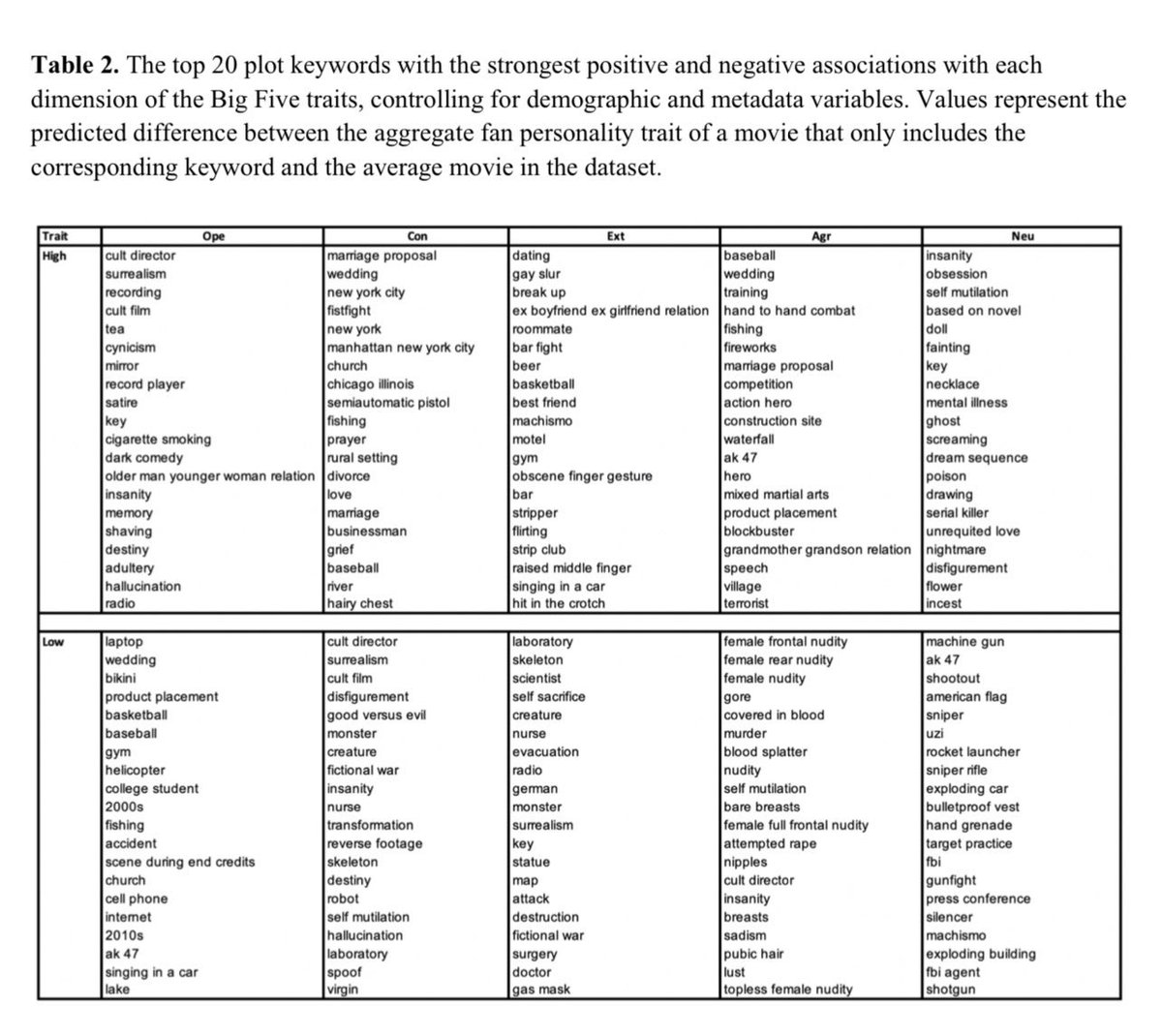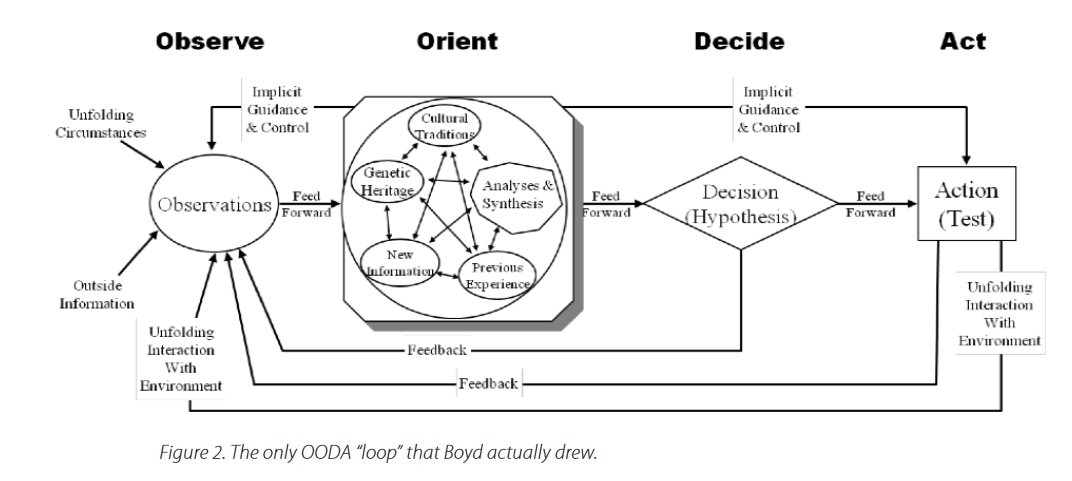
Its like a Buzzfeed quiz, but with real science: two papers show the movies and books you like can be used to accurately predict Big 5 personality traits. Take a look at the lists! (& some examples in the thread)
Movie paper: psyarxiv.com/wsdu8/download…
Books: arxiv.org/ftp/arxiv/pape…



Movie paper: psyarxiv.com/wsdu8/download…
Books: arxiv.org/ftp/arxiv/pape…




Some examples:
🎥Wes Anderson movies predict high openness to experience
🎥Shrek Forever After predicts low openness to experience
🎥Corpse Bride predicts high neuroticism
🎥Studio Ghibli predicts introversion
📕Manga & Drizzt novels also predict introversion
🎥Wes Anderson movies predict high openness to experience
🎥Shrek Forever After predicts low openness to experience
🎥Corpse Bride predicts high neuroticism
🎥Studio Ghibli predicts introversion
📕Manga & Drizzt novels also predict introversion
In case you aren’t familiar with the Big Five (or OCEAN test), it is the current gold standard for personality testing, assessing you on extraversion, agreeableness, conscientiousness, negative emotionality and openness to experience. You can take it here: projects.fivethirtyeight.com/personality-qu…
The Big Five is a robust measure of personality with long-term implications. For example, it influences academic & job performance, as well as mental health.
https://twitter.com/StefanFSchubert/status/1455677535803564036
On the other hand, popular personality tests like Enneagram (inverse.com/mind-body/enne…) & Myers-Briggs (psychologytoday.com/us/blog/give-a… ) aren’t valid & personality does not fall into neat types. But these tests seem right because they give us vague descriptions that can apply to anyone. 

So, since conscientiousness is a reasonably good predictor of academic, work, and startup success, maybe you should consider hiring people who like National Lampoon’s Christmas Vacation or Steel Magnolias. Or else who read mystery novels or books on theology. 



• • •
Missing some Tweet in this thread? You can try to
force a refresh



















